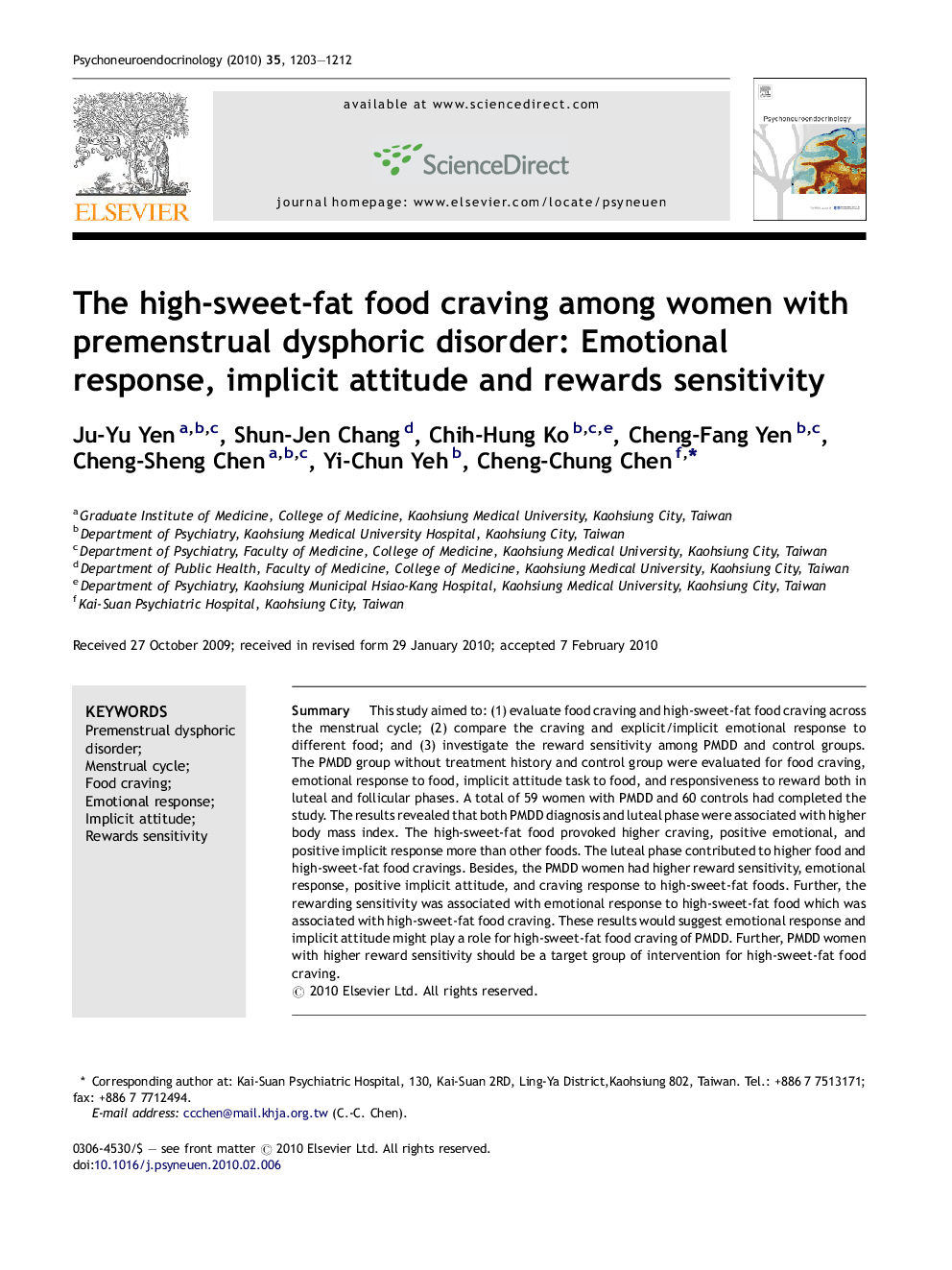| Article ID | Journal | Published Year | Pages | File Type |
|---|---|---|---|---|
| 336553 | Psychoneuroendocrinology | 2010 | 10 Pages |
SummaryThis study aimed to: (1) evaluate food craving and high-sweet-fat food craving across the menstrual cycle; (2) compare the craving and explicit/implicit emotional response to different food; and (3) investigate the reward sensitivity among PMDD and control groups. The PMDD group without treatment history and control group were evaluated for food craving, emotional response to food, implicit attitude task to food, and responsiveness to reward both in luteal and follicular phases. A total of 59 women with PMDD and 60 controls had completed the study. The results revealed that both PMDD diagnosis and luteal phase were associated with higher body mass index. The high-sweet-fat food provoked higher craving, positive emotional, and positive implicit response more than other foods. The luteal phase contributed to higher food and high-sweet-fat food cravings. Besides, the PMDD women had higher reward sensitivity, emotional response, positive implicit attitude, and craving response to high-sweet-fat foods. Further, the rewarding sensitivity was associated with emotional response to high-sweet-fat food which was associated with high-sweet-fat food craving. These results would suggest emotional response and implicit attitude might play a role for high-sweet-fat food craving of PMDD. Further, PMDD women with higher reward sensitivity should be a target group of intervention for high-sweet-fat food craving.
